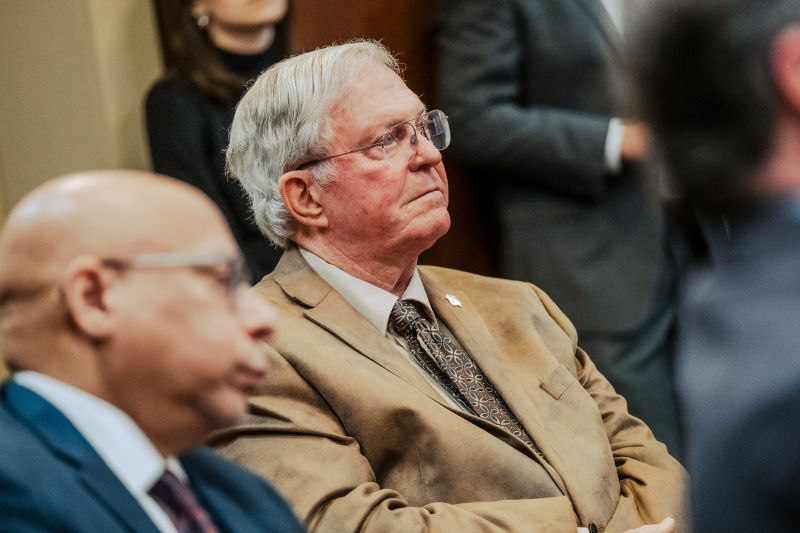Politics
Republicans Acknowledge Trump’s Influence in Race to Succeed McConnell
As the clock ticks down to the selection of a new leader to fill the shoes of Senator Mitch McConnell, Senate Republicans find themselves in a delicate dance. They are mindful of the looming shadow cast by one influential figure outside the hallowed halls of Congress: former President Donald J. Trump.
Trump’s Role as the De Facto Frontrunner
With nine months remaining before the crucial decision, voices within the Republicans are acknowledging Trump’s pervasive presence and potential sway over the race. Senator Mike Rounds, Republican of South Dakota, emphasized Trump’s role as the de facto frontrunner. He acknowledged on ABC’s “This Week” that the former president “will have a voice” in the selection process. Despite mixed feelings among party members, maintaining a positive relationship with Trump remains a priority. Should he pursue the presidency again, this priority stands firm.
Navigating the Trump Quandary
According to a New York Times report, the acknowledgment of Trump’s influence serves as a stark reminder of his ability to shape the trajectory of any senatorial bid for leadership within the Republican ranks. McConnell’s recent announcement to step away from the helm, citing the party’s deep-rooted allegiance to Trump, underscores this reality. With McConnell’s estrangement from the former president, it became untenable for him to continue leading. The base, firmly in Trump’s grasp, made this clear.
Contenders and Their Alignments
Among the contenders, Senators John Cornyn of Texas and John Thune of South Dakota have both faced scrutiny for their past criticisms of Trump. However, as the race intensifies, both have publicly endorsed Trump for the 2024 campaign. They are navigating a fine line between appeasing the party’s base and retaining their individual identities. Another potential candidate is Senator John Barrasso of Wyoming. He has positioned himself firmly aligned with Trump, potentially appealing to the more conservative factions within the party.
Cautioning Against Trump’s Direct Involvement
According to Wall Street Jr report, Senator Markwayne Mullin, Republican of Oklahoma, raised concerns over Trump’s involvement in the race, cautioning against potential repercussions. Mullin, a supporter of Thune’s bid, highlighted the need for unity within the party and emphasized the importance of cooperation with whoever assumes leadership.
Asserting Independence Amidst Trump’s Influence
Despite the looming influence of Trump, Senator Rounds emphasized the independence of Senate Republicans. He highlighted this independence in making their choice for a new leader. Expressing a desire for a leader who can collaborate with Trump while maintaining autonomy is crucial. Rounds underscored the need for a strong individual to navigate this balance effectively. He emphasized the ability to navigate the complexities of party dynamics and Senate protocol.
The Future of Senate Republican Leadership
As the race unfolds, the delicate balance between acknowledging Trump’s influence and asserting individual autonomy will undoubtedly shape the future of the Senate Republican conference. The selection process promises to be a testament to the intricate dynamics within the GOP. With each candidate carefully maneuvering to secure both Trump’s approval and maintain their own integrity.

